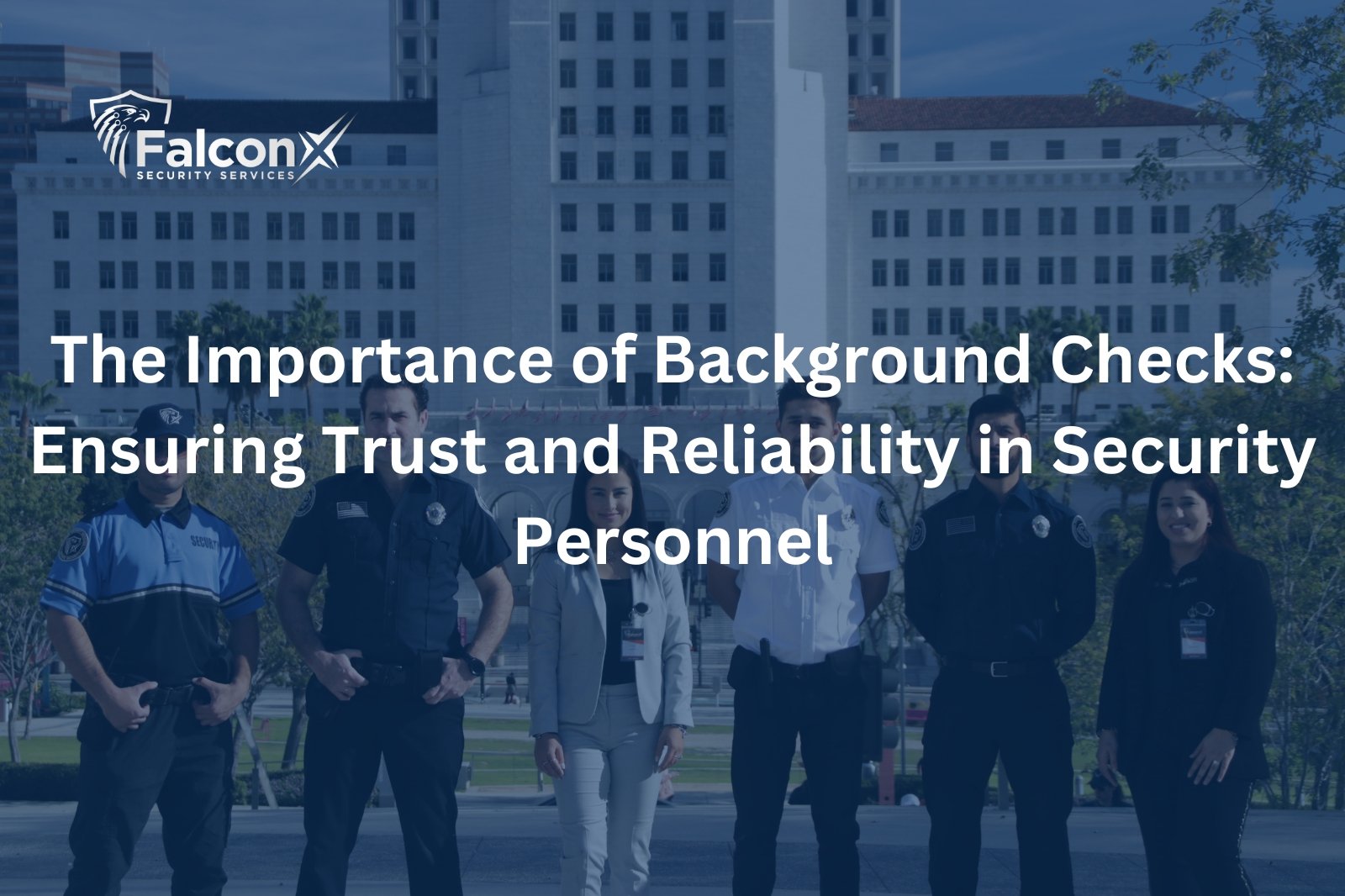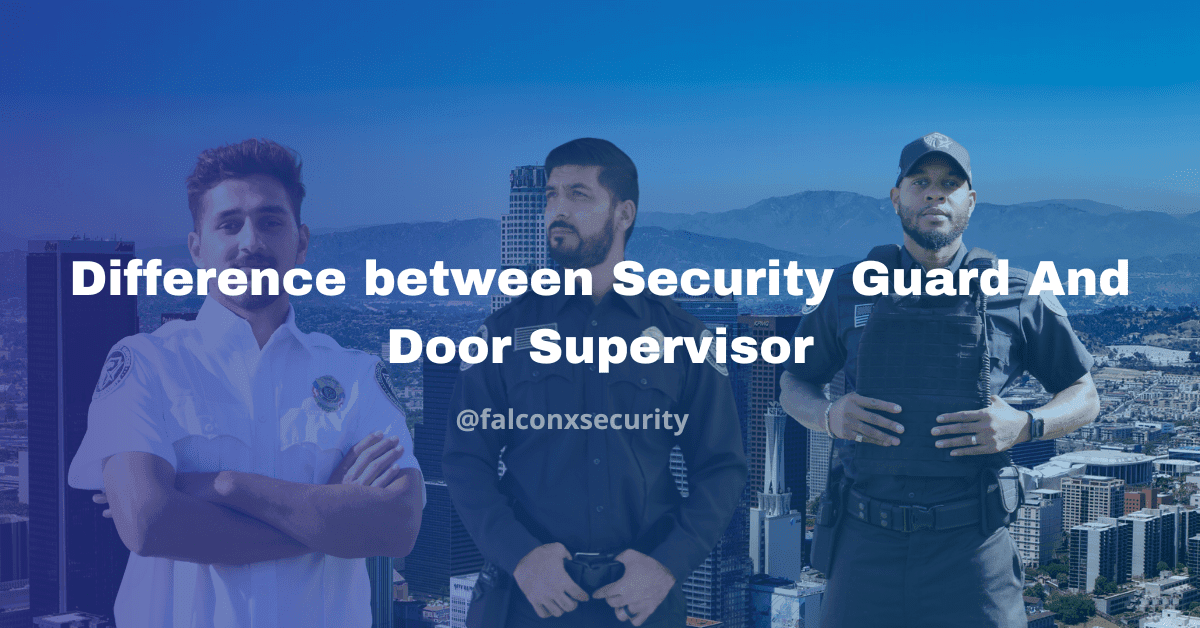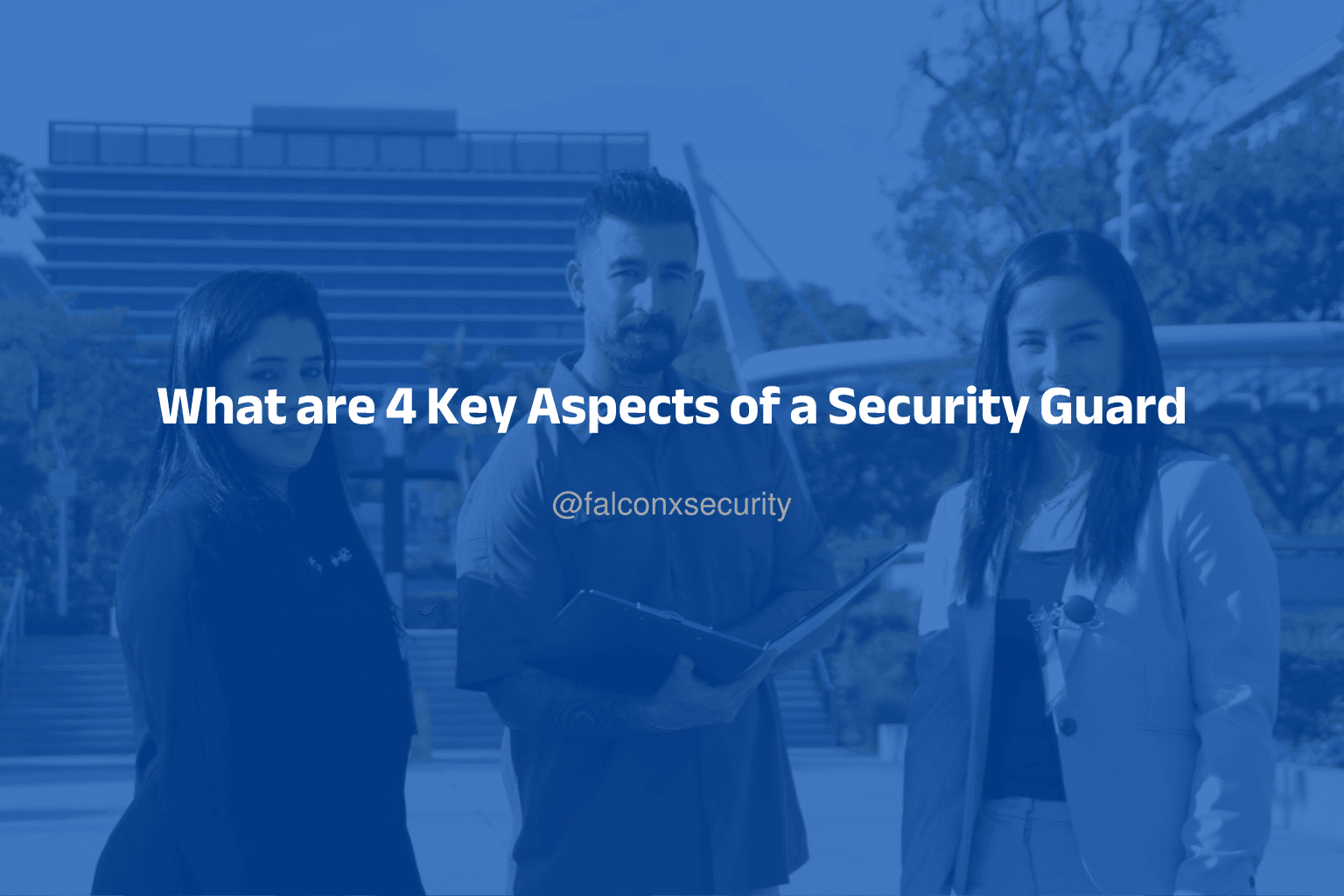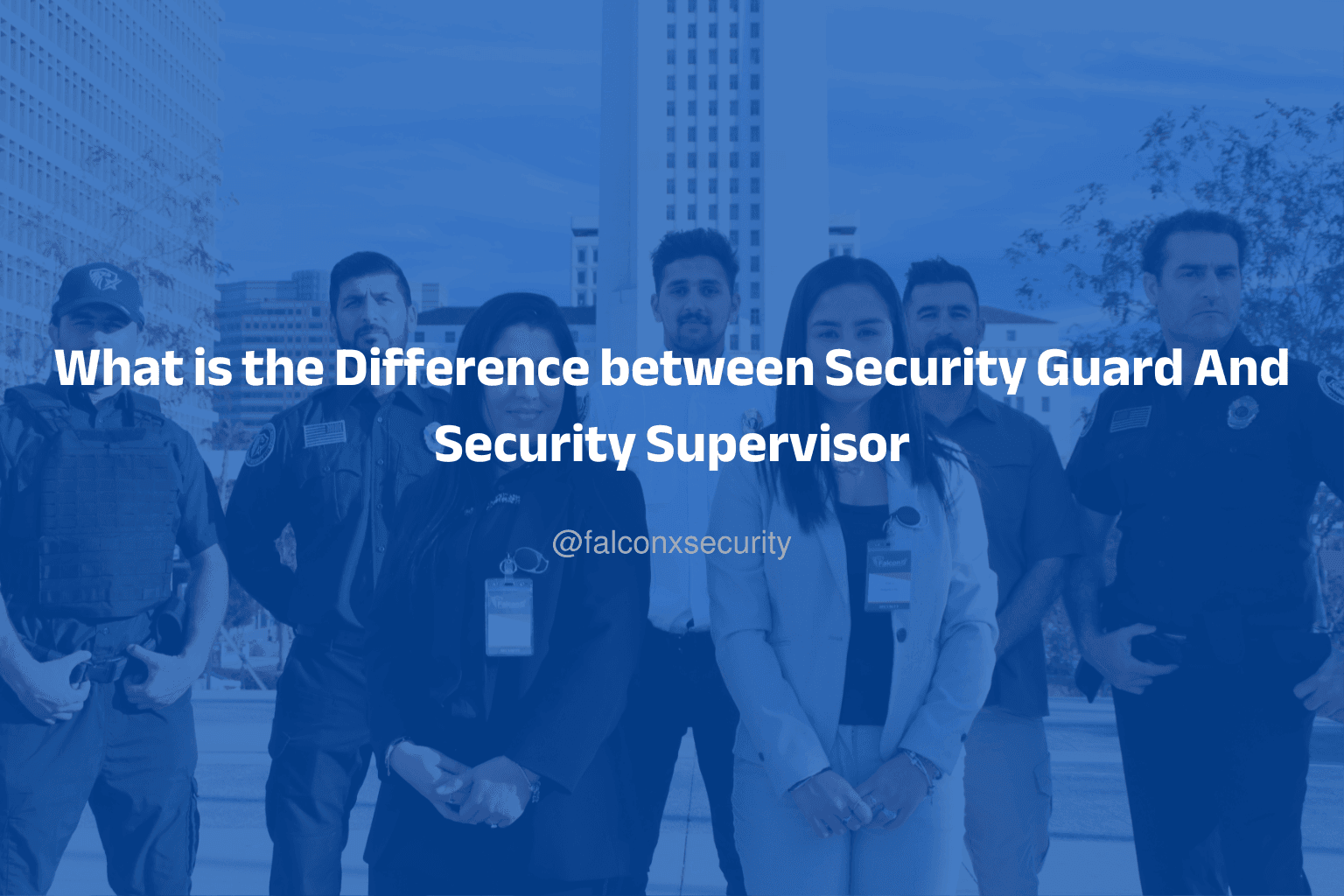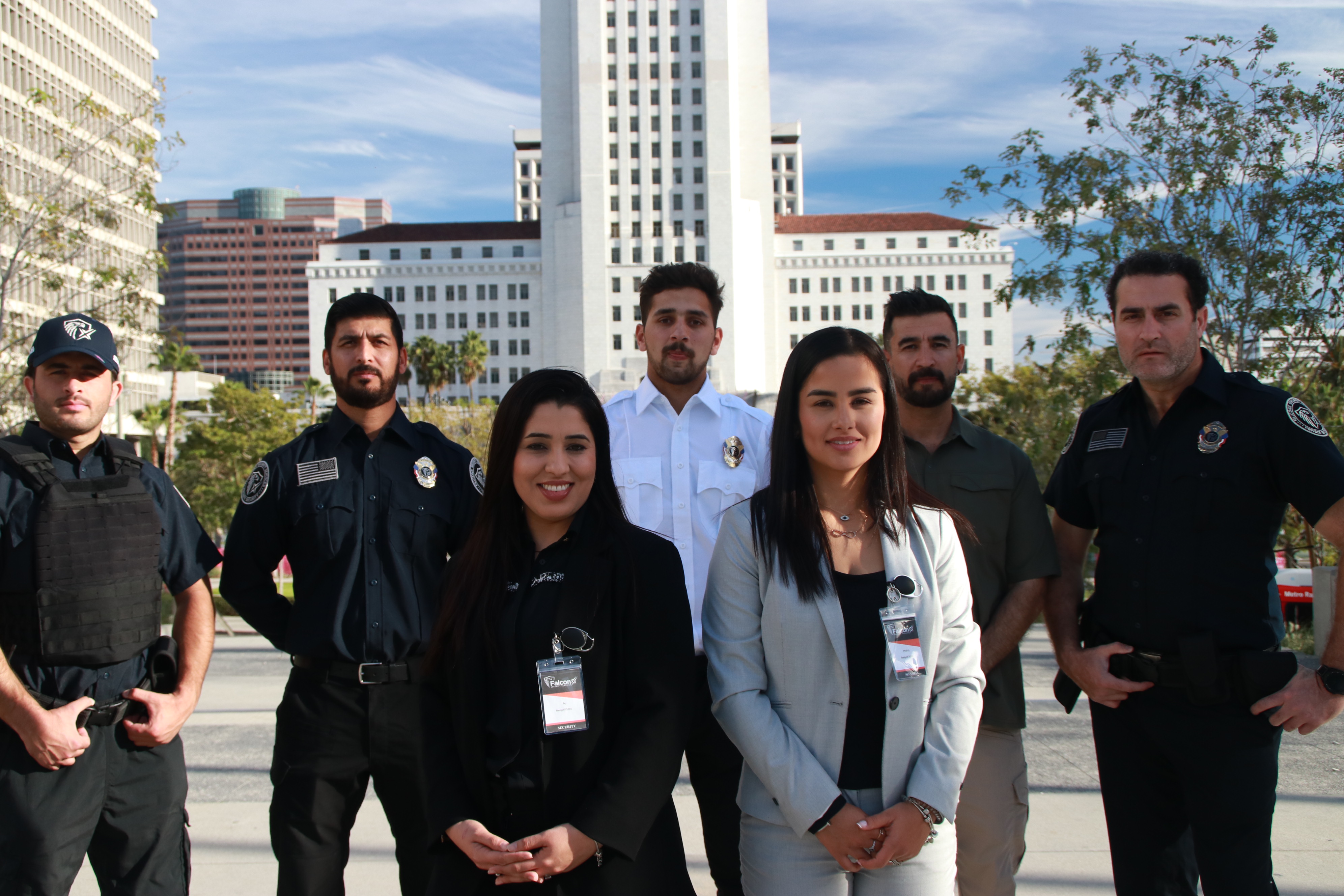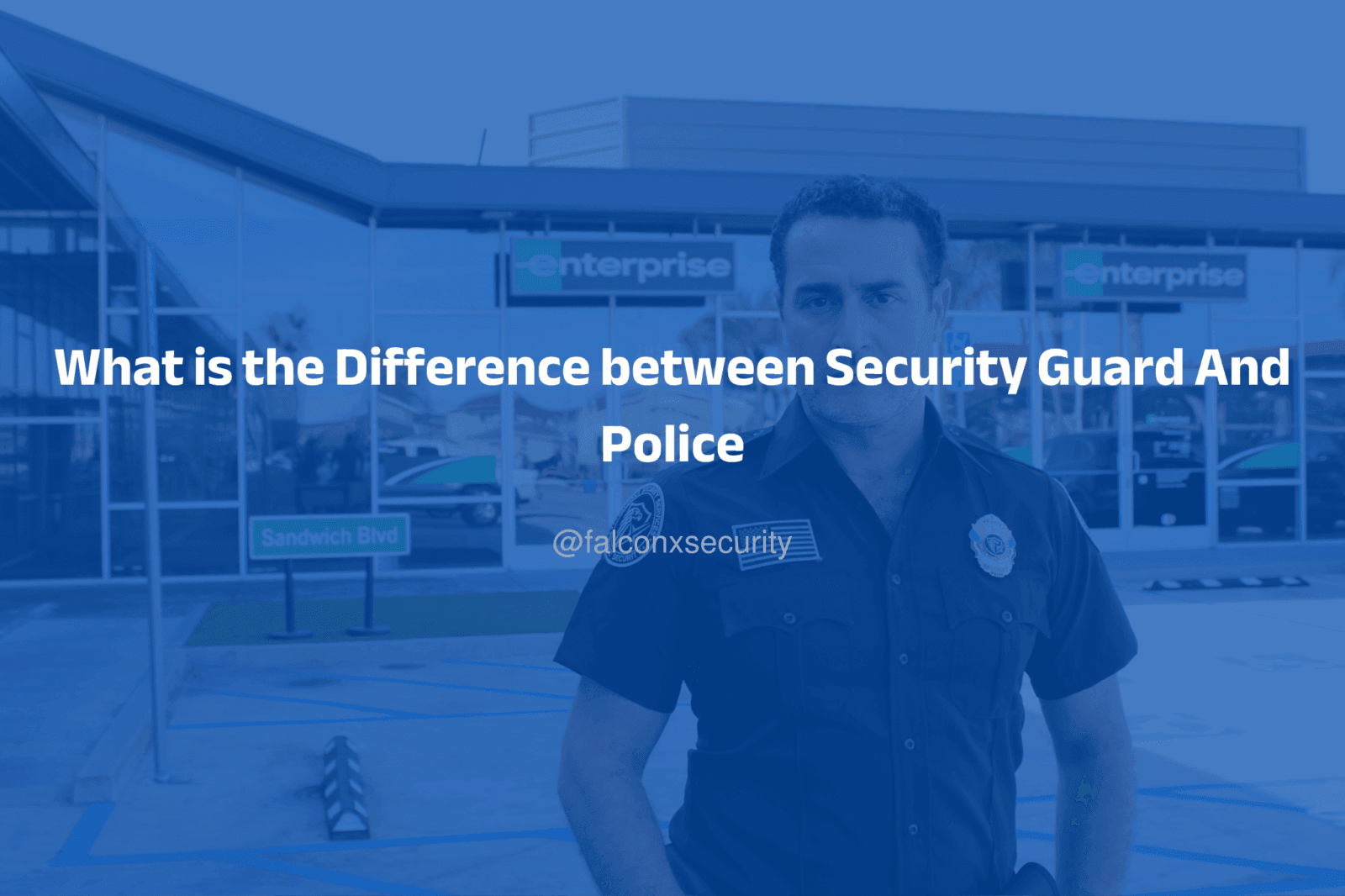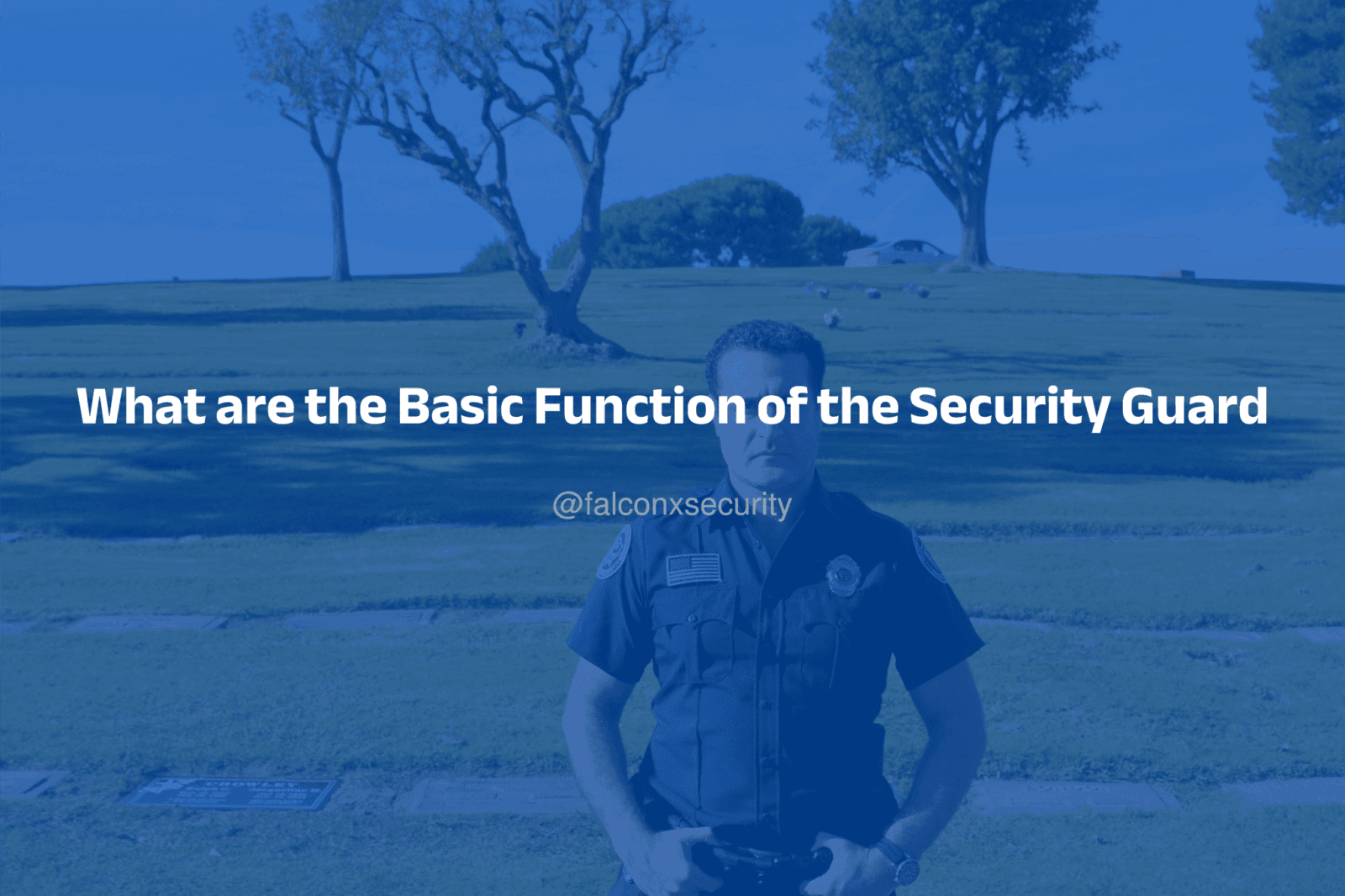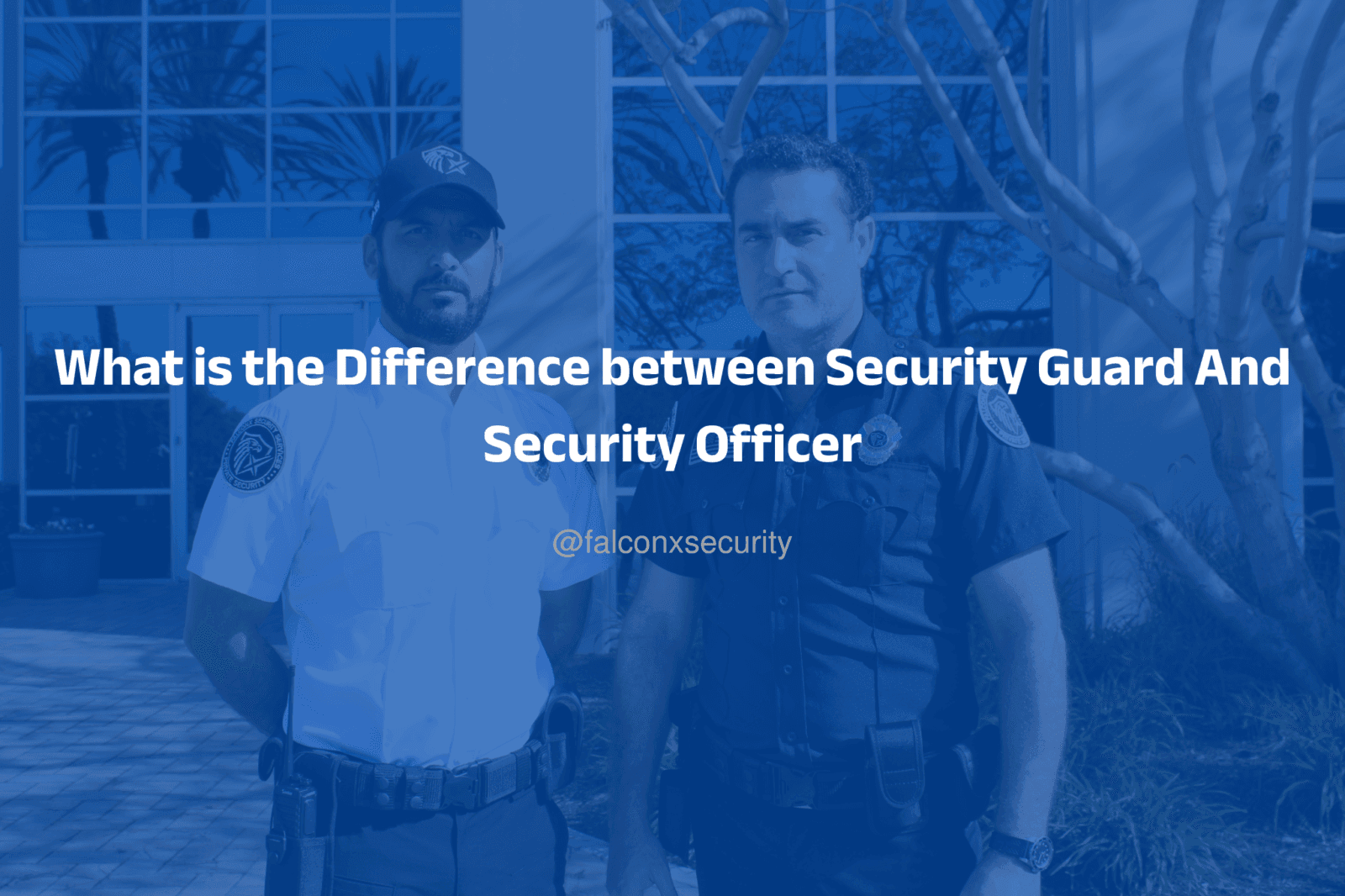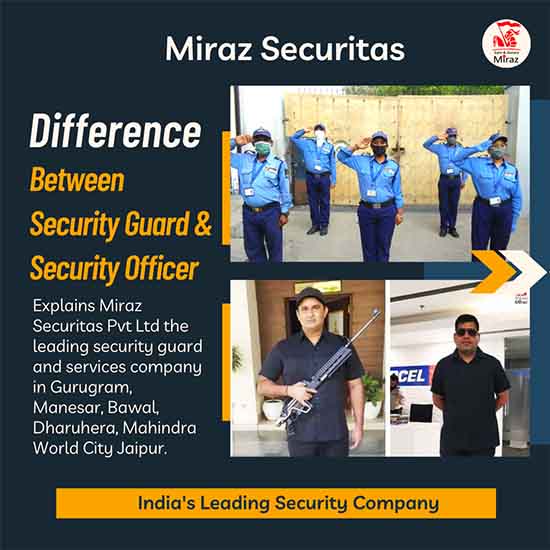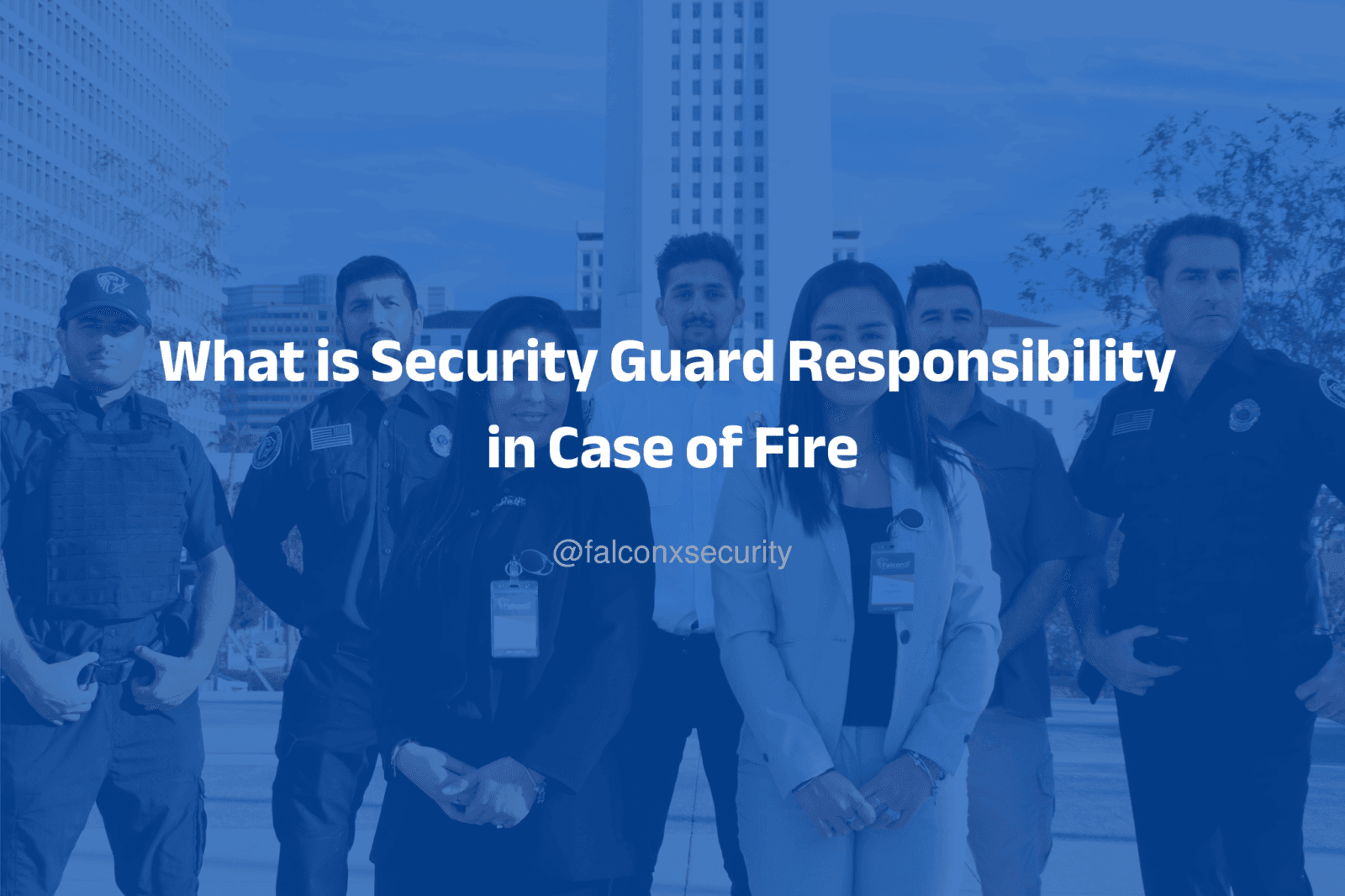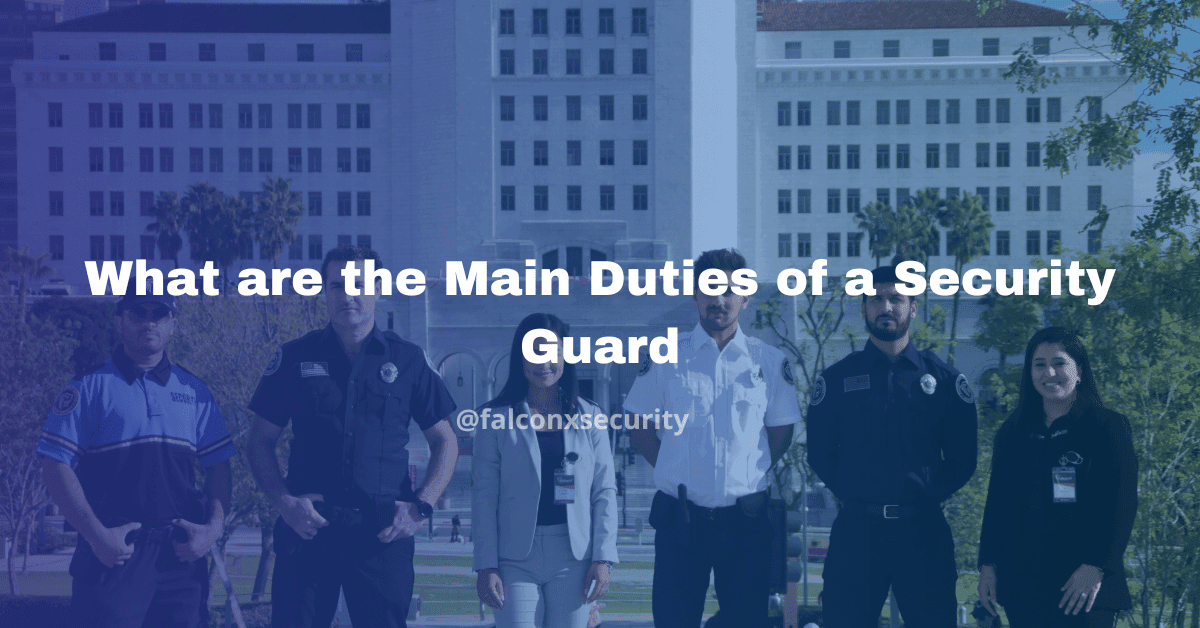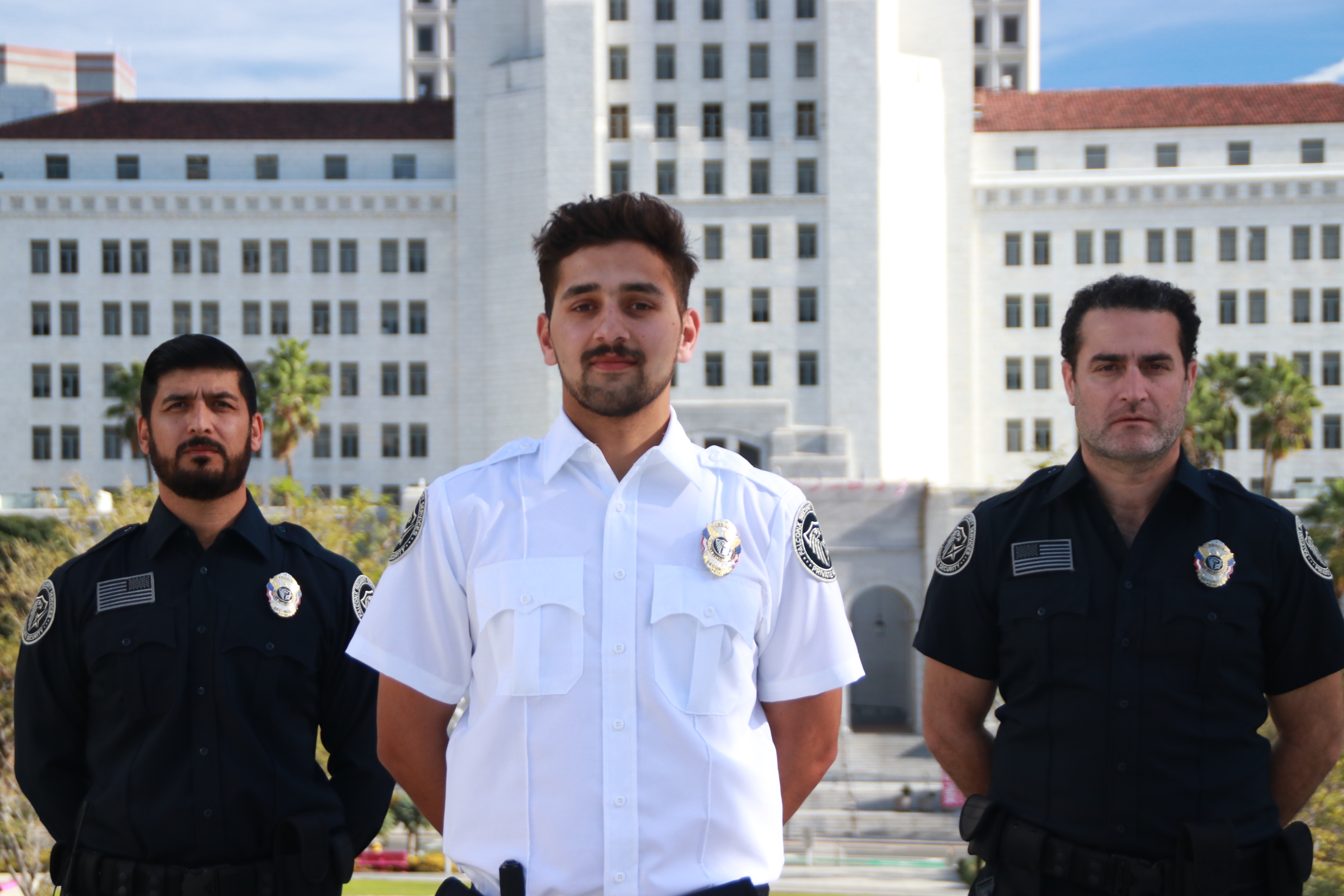Four key aspects of a security guard include vigilance, communication skills, physical fitness, and problem-solving abilities. Security guards play a crucial role in safeguarding people and property.
They must be alert and attentive at all times, able to effectively communicate with others, maintain good physical health, and think quickly on their feet to resolve potential security threats. These qualities are essential for ensuring the safety and security of the premises they are tasked to protect.
A skilled security guard possesses a combination of these attributes, making them a valuable asset in maintaining a secure environment for clients and the public.
The Role Of A Security Guard
A security guard plays a vital role in ensuring the safety and security of people and property. Four key aspects of a security guard include vigilance, attention to detail, communication skills, and physical fitness. They must be alert at all times, paying attention to even the smallest details and effectively communicating any potential threats to prevent incidents.
Additionally, physical fitness is essential to handle any situation that may arise.
A security guard plays a crucial role in maintaining safety and security in various environments. Their responsibilities go beyond just standing at a post; they are entrusted with protecting people and safeguarding assets. Let’s take a closer look at the four key aspects of a security guard’s role:
Protecting People
One of the primary responsibilities of a security guard is to protect people in the area they are assigned. Whether it’s a commercial building, a residential complex, or an event venue, their presence alone acts as a deterrent to potential threats. Security guards are trained to be vigilant and proactive, keeping a watchful eye on everyone who enters and exits the premises.
In case of any suspicious activity or emergency situations, security guards are trained to respond swiftly and effectively. They are trained in basic first aid and CPR, allowing them to provide immediate assistance until medical professionals arrive. By ensuring the safety of individuals, security guards create a sense of peace and comfort in the environment.
Safeguarding Assets
Another crucial aspect of a security guard’s role is safeguarding assets. This includes protecting valuable equipment, merchandise, confidential information, and property. Security guards monitor access points, conduct regular patrols, and enforce security protocols to prevent theft, vandalism, or unauthorized entry.
They may use surveillance systems, such as CCTV cameras, to monitor the area and identify any suspicious activities. In addition, security guards may also implement access control measures, such as checking IDs or issuing visitor passes, to ensure that only authorized individuals have access to restricted areas. By safeguarding assets, security guards help businesses and organizations avoid financial losses and maintain operational continuity.
Ensuring Safety Compliance
Security guards also play a vital role in ensuring safety compliance within their assigned premises. They are responsible for enforcing safety regulations, such as fire safety protocols and evacuation procedures. They conduct regular inspections to identify potential hazards and take necessary measures to mitigate risks.
Security guards may also assist in crowd control during events or emergencies, ensuring that people follow safety guidelines and maintain order. By enforcing safety compliance, security guards help prevent accidents, injuries, and property damage.
Providing Customer Service
While the primary duty of a security guard is to maintain security, they also provide customer service. They act as a point of contact for visitors, answering questions, providing directions, and offering assistance when needed. Security guards often act as a representatives of the organization they work for, creating a positive and welcoming environment for everyone.
They may also handle minor conflicts or disputes, using their communication and conflict resolution skills to de-escalate situations and maintain a peaceful atmosphere. By providing excellent customer service, security guards enhance the overall experience of individuals within the premises.
Vigilance: The Eyes And Ears Of Security
Vigilance is a crucial aspect of a security guard’s role, as they are the eyes and ears of security, constantly monitoring and assessing their surroundings for potential threats and risks. This keen attention to detail enables security guards to maintain a safe and secure environment for individuals and property. Let’s explore the key aspects of vigilance in the context of a security guard’s duties.
Awareness Of Surroundings
Security guards must maintain constant awareness of their surroundings, ensuring that they are familiar with the layout and potential vulnerabilities of the area they are tasked to protect. This includes being mindful of entrances, exits, blind spots, and any potential security breaches. By staying alert and observant, security guards can quickly identify and address any security concerns that may arise.
Detecting Suspicious Activities
One of the primary responsibilities of a security guard is to detect and investigate any suspicious activities or individuals within their designated area. This includes monitoring CCTV footage, conducting patrols, and using their intuition and training to identify potential security threats. By promptly recognizing and responding to suspicious behavior, security guards can prevent security breaches and maintain a secure environment.
Physical Fitness: Ready For Action
Explore the 4 key aspects of a security guard: physical fitness, situational awareness, communication skills, and problem-solving abilities. A well-rounded security guard is ready for action with a focus on these essential components.
Security guards are responsible for protecting people and property. Physical fitness is crucial for security guards as they need to be ready to act at any moment. A security guard’s physical fitness can make a significant difference in their ability to perform their duties effectively. In this section, we’ll discuss the three key aspects of physical fitness that security guards need to maintain: maintaining stamina, handling physical confrontations, and being alert.
Maintaining Stamina
Security guards need to maintain their stamina throughout their shifts. They need to be able to remain alert and focused for long periods, often standing or walking for hours at a time. To maintain their stamina, security guards need to eat a healthy diet and exercise regularly. A good exercise routine can include cardio and strength training exercises to keep their bodies in shape and ready for action.
Handling Physical Confrontations
Security guards may face physical confrontations in their line of duty. They need to be prepared to handle these situations, which can be physically demanding. Security guards need to have the strength to restrain people if necessary while avoiding injury to themselves or others. They also need to be familiar with self-defense techniques to protect themselves and others.
Being Alert
Security guards must be alert and vigilant at all times. They need to be able to detect potential threats and respond quickly to any situation. Being alert requires physical fitness as well as mental focus. Security guards need to be well-rested and able to concentrate on their surroundings at all times. In conclusion, physical fitness is an essential aspect of a security guard’s job. Maintaining stamina, handling physical confrontations, and being alert are all crucial for a security guard to perform their duties effectively. By staying in good physical shape, security guards can be ready for action whenever their services are needed.
Communication Skills: The Art Of Clarity
In the realm of security guard work, four key aspects are essential for effective communication skills. These include clear and concise verbal communication, active listening, nonverbal cues, and adapting communication styles to different situations and individuals.
Effective Reporting
A security guard’s ability to communicate clearly and concisely through effective reporting is crucial to maintaining a safe and secure environment. This aspect of communication skills allows security guards to provide accurate and detailed information about incidents, potential threats, or any suspicious activities that they observe during their shift.
Through clear and concise reporting, security guards ensure that all necessary information reaches the relevant authorities promptly. This allows for timely decision-making and appropriate action to be taken, minimizing potential risks and maintaining a secure environment for everyone.
De-escalating Situations
Another essential aspect of communication skills for security guards is the ability to de-escalate tense situations. Security guards often find themselves in confrontational or challenging scenarios where their communication skills play a vital role in diffusing conflicts and maintaining order.
Through effective communication, security guards can calm agitated individuals, defuse potentially violent situations, and prevent further escalation. Their ability to listen actively, empathize, and communicate clearly helps in resolving conflicts peacefully, ensuring the safety of all parties involved.
The Importance Of Training
The Importance of Training is paramount for security guards to effectively carry out their duties and ensure the safety and security of the premises they are assigned to protect.
Learning Legal Boundaries
Security guards must undergo rigorous training to understand and adhere to the legal boundaries within which they must operate. This includes knowledge of relevant laws and regulations to maintain a safe and lawful environment.
Emergency Response Preparedness
Training in emergency response preparedness equips security guards to handle crises effectively, such as fires, medical emergencies, or security breaches. This ensures a quick and appropriate response to any unforeseen situation.
Technology In Modern Security Work
Key aspects of a security guard in modern security work involve technology integration. From access control systems to CCTV, alarms, and remote monitoring, the integration of technology improves security measures and response time.
Security guards have been a cornerstone of security for many years, but the role of a security guard has evolved with the changing times. With the advancement of technology, modern security guards are equipped with the latest tools and technology to keep themselves and their clients safe. In this post, we will discuss the four key aspects of a security guard, with a focus on technology in modern security work.
Surveillance Tools
One of the most critical aspects of modern security work is surveillance. Surveillance tools such as CCTV cameras and drones have made it easier for security guards to keep an eye on large areas and monitor suspicious activities. These tools can be used to detect potential threats and prevent them from escalating into dangerous situations. CCTV cameras can also be used as evidence in case of any criminal activity.
Access Control Systems
Access control systems are essential for modern security guards. They allow guards to control who has access to a particular area and can prevent unauthorized access. Access control systems can range from simple keycard systems to biometric scanners that use fingerprints or facial recognition technology. These systems can also be integrated with other security tools such as CCTV cameras to provide a comprehensive security solution.
Patrol Management Systems
Patrol management systems are software tools that help security guards manage their patrols more efficiently. These tools can be used to track guard movements, monitor checkpoints, and report incidents in real time. They also enable guards to communicate with each other and with their supervisors, ensuring that everyone is on the same page and that any potential issues are dealt with promptly.
Communication Tools
Effective communication is crucial for modern security guards. They need to be able to communicate with each other, their supervisors, and emergency services quickly and efficiently. Communication tools such as two-way radios, mobile phones, and panic buttons are essential for ensuring that guards can quickly respond to any potential threats. These tools can also be used to send alerts to other guards in case of an emergency. In conclusion, technology has revolutionized the role of security guards. The use of surveillance tools, access control systems, patrol management systems, and communication tools has made it easier for guards to do their job effectively. As technology continues to evolve, we can expect to see even more advanced tools and systems that will help security guards keep themselves and their clients safe.
Ethics And Professionalism
Ethics and professionalism are crucial aspects of a security guard’s role, shaping their conduct and interactions with clients, colleagues, and the public. Upholding high ethical standards and demonstrating professionalism not only enhances the reputation of security firms but also fosters trust and confidence in the community.
Maintaining Confidentiality
Security guards often encounter sensitive information while on duty, such as personal details of clients or confidential business operations. It is imperative for them to maintain strict confidentiality to safeguard the privacy and interests of those they are entrusted to protect.
Upholding Moral Standards
Security guards must adhere to a code of ethics that governs their behavior and decision-making. This includes acting with integrity, being honest and fair, and upholding moral values even in challenging situations.
Credit: www.ebay.com
Career Pathways In Security
When considering a career in the security industry, it’s important to understand the various career pathways available. As a security guard, there are four key aspects that can shape your career, including advancement opportunities and specialization areas. Let’s delve into the career pathways in security to gain a comprehensive understanding of the potential growth and diversification within this field.
Advancement Opportunities
Advancement opportunities in the security industry offer security guards the chance to progress in their careers and take on more responsibilities. This may include moving into supervisory or management roles, such as security supervisor, security manager, or even director of security. As security guards gain experience and demonstrate leadership skills, they can be promoted to higher positions within the security organization.
Specialization Areas
Specialization areas in security present security guards with the option to focus on specific areas of expertise. This can include specializing in corporate security, event security, retail security, or even cyber security. By honing their skills in a particular niche, security guards can become valuable assets in their specialized area, offering their expertise to clients or organizations seeking specific security needs.
Frequently Asked Questions
What Are The 5 Qualities Of A Security Guard?
The 5 qualities of a security guard are vigilance, alertness, physical fitness, communication skills, and integrity. A security guard should be attentive, physically fit, and possess good communication skills and honesty.
What Are The 5 Basic Security Guard’s Professionalism?
The 5 basic professionalism traits of a security guard are integrity, punctuality, alertness, communication skills, and physical fitness. These traits are essential for ensuring safety and maintaining a secure environment.
What Are The 5 Pillars Of Security Guard?
The 5 pillars of a security guard include: 1. Vigilance: staying alert and observant 2. Reporting: documenting incidents and observations 3. Communication: effectively conveying information 4. Patrolling: maintaining a visible presence 5. Access control: managing entry and exit points.
What Are the Four Main Responsibilities Of A Security Officer?
The four main responsibilities of a security officer are 1. Patrolling assigned areas to deter and prevent security breaches. 2. Monitoring surveillance equipment to ensure safety. 3. Responding promptly to incidents and alarms. 4. Enforcing rules and regulations to maintain order.
Conclusion
A security guard’s role is crucial in maintaining safety and security. The key aspects include vigilance, communication skills, physical fitness, and quick decision-making abilities. By embodying these qualities, security guards can effectively protect individuals and properties, ensuring a secure environment for all.
